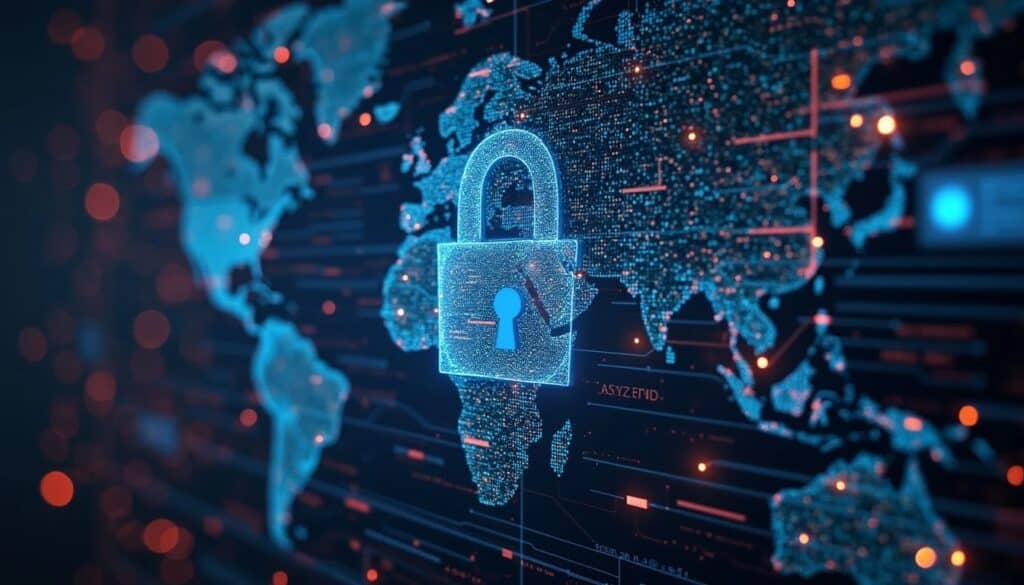Virtual Private Networks (VPNs) have become an indispensable tool for enhancing online privacy and security. Below, we explore in detail what a VPN is, how it works, and how to choose the best option for your needs.
What is a VPN?
A VPN is a technology that creates a secure and encrypted connection over a less secure network, such as the Internet. This allows users to send and receive data over a shared or public network as if their devices were connected to a private network. The VPN hides the user’s IP address and encrypts data traffic to protect privacy.
What is a VPN used for?
VPNs are used to:
- Protect Online Privacy: By encrypting data traffic, a VPN prevents third parties, such as Internet Service Providers (ISPs) and advertisers, from tracking the user’s online activities.
- Access Restricted Content: They allow users to bypass geographical blocks and access restricted or censored content in their country.
- Security on Public Networks: They provide an additional layer of security when using public Wi-Fi networks, protecting personal data from potential attacks.
How does a VPN work?
A VPN works by creating an encrypted tunnel between the user’s device and the VPN server. Here is the simplified process:
- Connection to a VPN Server: The user connects to a VPN server through a VPN app.
- Data Encryption: The VPN encrypts data traffic before sending it over the Internet.
- Traffic Redirection: The encrypted traffic is sent to the VPN server, which decrypts the data and redirects it to the final destination.
- IP Concealment: The user’s IP address is hidden, as the VPN server uses its own IP for communications.
Why should you use a VPN?
Using a VPN has several advantages:
- Privacy and Anonymity: Protect your online identity and prevent tracking of your activities.
- Additional Security: Prevent attacks and unauthorized access on insecure networks.
- Global Access: Facilitate access to content and services restricted by location.
How to set up a VPN?
Setting up a VPN is relatively simple and generally involves the following steps:
- Select a VPN Provider: Choose a suitable VPN service (paid or free) and sign up.
- Download the App: Download and install the VPN app on your device.
- Log in: Open the app and log in with your credentials.
- Connect to the Server: Select a VPN server and connect.
- Verify the Connection: Check that the connection is active and that the IP is hidden.
How to choose the best VPN provider?
To choose the best VPN provider, consider:
- Security and Privacy: Verify privacy policies, encryption used, and no-logs policy.
- Speed and Performance: Opt for services that offer good connection speeds and performance.
- Compatibility: Make sure the VPN is compatible with all your devices and operating systems.
- Customer Support: Check the quality of customer support and availability of technical assistance.
How to choose between paid and free VPNs?
Free VPNs like NordVPN, Urban VPN, Proton VPN, and PrivadoVPN may be an attractive option for those looking to try the technology at no cost. However, paid VPNs usually offer additional advantages such as:
- Higher Security: Paid VPNs tend to have stricter privacy policies and better encryption features.
- Superior Performance: Less impact on connection speed and fewer usage limitations.
- Additional Support: More robust technical support and more effective problem-solving solutions.
Why do companies use VPNs?

Companies use VPNs for:
- Data Security: Protecting communications and sensitive data within the organization.
- Secure Remote Access: Allowing employees to securely access the corporate network from remote locations.
- Secure Connections: Facilitating secure connections between branches and central offices.
How do companies use VPNs?
Companies often use VPNs in the following ways:
- Virtual Private Networks: Set up virtual private networks to securely connect offices and remote workers.
- Data Protection: Implement VPN policies to encrypt communications and protect corporate information.
- Access Control: Use VPNs to manage access to internal resources and ensure only authorized personnel have access.
In conclusion, cybersecurity and the use of VPNs are essential for protecting online privacy and security for both individual users and businesses. Choosing the right VPN and configuring the technology correctly can make a significant difference in data protection and secure access to resources.

